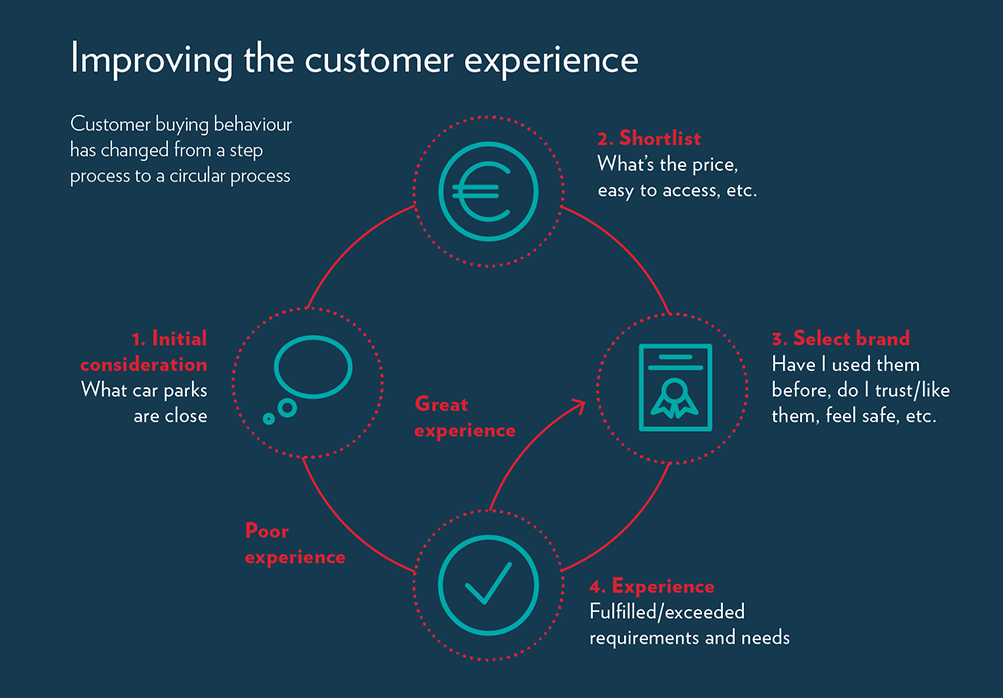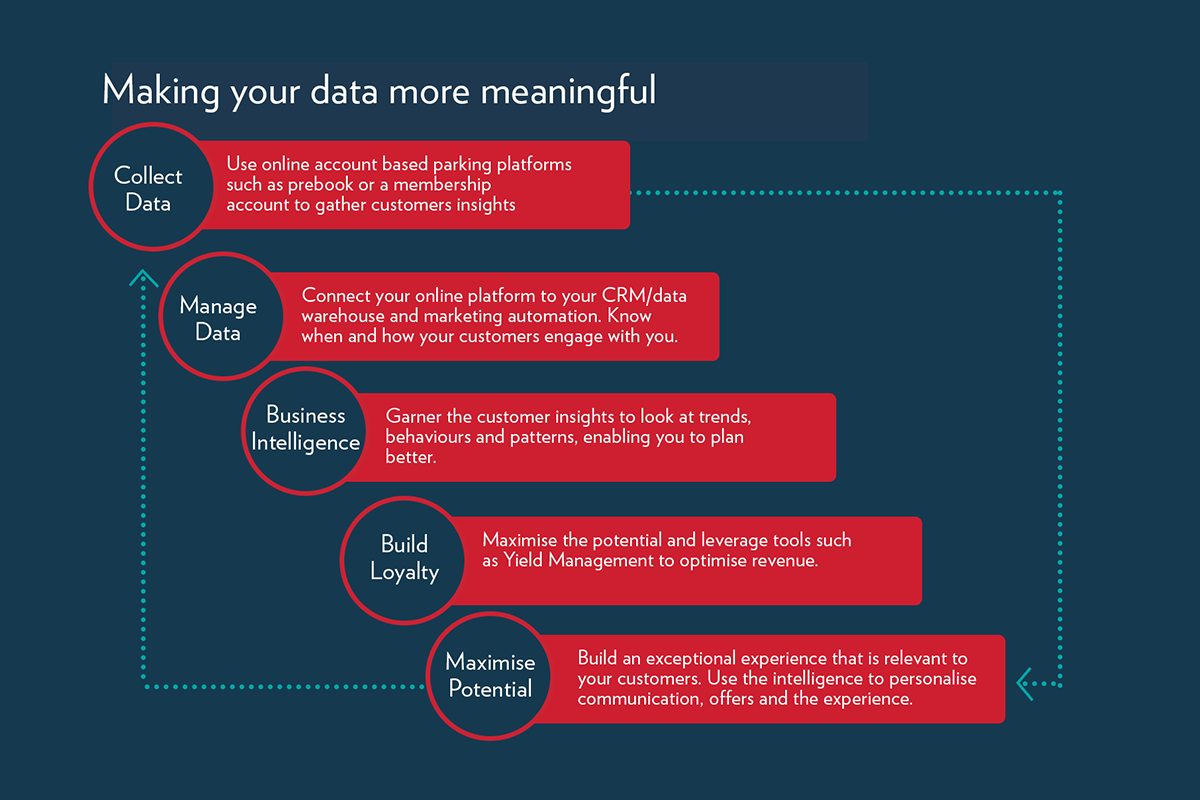Importance of knowing your customer
Posted 5 December 2018, Australia
Do parking businesses really need to ‘know’ its customer and how is this achieved?
The parking industry has seen the fastest surge of new competitors and disruptors in the last 10 years compared to any previous time. Not only has there been an introduction of new competitors, there has been a shift in the way customers pay due to technology innovation such as cashless and mobile apps. With the introduction of disruptors new threats such as ride share and car share companies, which are changing the way people use their cars, will be more prevalent in the future.
Add on to this the fact that the rate of car ownership is declining with the new generation of customers, the traditional model of simply renting a space to park is at threat.
Pace of change is the slowest it will ever be
Although the parking industry has seen a rapid rate of change in recent years, as the last 20 years have shown across most industries, the rate of change is constantly accelerating. In this age of change, the companies that close the gap between their brand and the voice of the customer will be the best positioned to remain competitive and combat challenger brands.
With the digital age, it’s not only the Millennials and Gen Z that expect the heightened customer experience. All consumers expect to look for and buy services online, are used to an element of personalisation, are loyal to brands that they have empathy with and expect to be rewarded for that loyalty.

If general consumer behaviour is shifting to this new customer focused approach, how does parking relate?
Price and even location alone is not enough to influence a purchase decision. Although value-add services such as car wash or valet parking might entice customers, do you know who your customers are, how to maximise loyalty and how to attract new customers?
How well do you know your customers?
In the traditional parking model, it can be hard for operators to know who their customer is. You may know the rate of occupancy and the average length of stay, but do you know who your individual customers are, why they choose to park with you, how frequently they park and what makes them visit your car park?
A recent Gallup study revealed that marketers who use customer data in marketing outperform peers by 85% in sales growth and more than 25% in gross margin[1]. And with 75% of consumers preferencing brands that personalise messaging and offers, how do you personalise a parking message and make it relevant?[2]
Using intelligence and not just data
Big Data has been a buzz word for a long time but to be successful companies can’t just collate data, they need to use intelligence that the data provides to understand customer behaviour and provide a better experience. As customers become more sophisticated, so should the companies that serve them.
Parking operators need to not just collect their customers data and mine Big Data, but they need to use the data available to them in a meaningful way to make the experience personal to each customer.
Below shows the key steps of how to make your data meaningful.

The power of account based parking and reservation platforms provide the tools to collect data and engage with customers, but operators need to look at how they can take it further and provide a seamless experience.
Across the world, the power of Apps and online engagement is transforming consumer engagement. Operators are able to connect their online platforms with wallets (such as Apple Wallet and Google Pay passes) enabling seamless access validation and loyalty program connectivity.
Reservation platforms are connected to third party loyalty programs, account based solutions are used to give loyalty discounts and the data harnessed from these solutions, alongsige intelligent data analytics, provides the ability to personalise the experirence to the individual customer.
Only once operators make the shift from renters of spaces, to customer service and customer experience businesses will they be able to compete with low-cost competitors and industry disruptors.
Source:
[1] Behavioral economics,Gallup. gallup.com
[2] Source: Aberdeen Group

